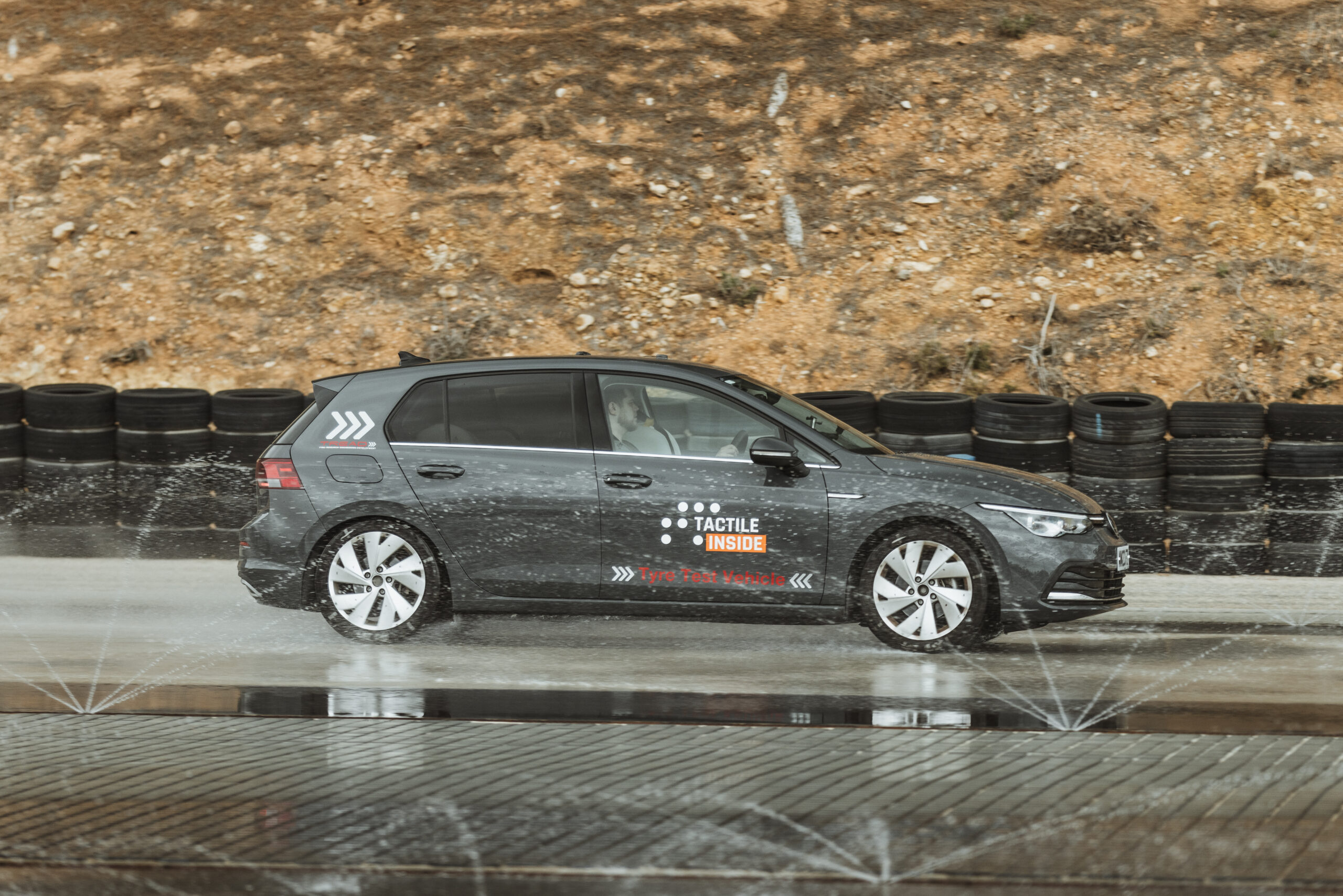By Jack Aylmer (Reporter/Producer), Zachary Hill (Editor)
When it comes to mass electric vehicle (EV) adoption, range anxiety has become one of the biggest roadblocks. A study by Cox Automotive revealed that over 80% of consumers have hesitated to purchase an EV due to concerns about its battery life.
To help ease some of these fears from drivers, Tactile Mobility is developing technology to enhance regenerative braking systems that aim to prolong the lifespan of EV batteries. The concept revolves around harnessing kinetic energy generated during braking and converting it into electrical power to recharge the vehicle’s battery.
“This is something that is a must have, because it’s almost no cost and increases the efficiency of the vehicle and the performance of the vehicle,” Boaz Mizrachi, the co-founder and chief technology officer of Tactile Mobility, told Straight Arrow News.
While this technology is already present in most fully electric and hybrid models, Tactile Mobility seeks to refine its efficiency to new levels. The transportation technology company is incorporating sensors that monitor various aspects of a vehicle’s performance in real time.
“If you can learn a little bit about the performance of your vehicles in different situations, you can extend the range and get better and faster regenerative charging,” Mizrachi said.
The data these sensors collect includes factors tire grip, vehicle weight, road friction and more. Compiling this information then allows the vehicle to make instantaneous adjustments, optimizing the amount of energy harvested through regenerative braking.
“If we can provide the exactly a new level, the exact friction coefficient that you have at each moment, when while you drive on the road, then you can use that and extend the magnitude of power harvesting while braking, the recuperative braking,” Mizrachi said. “And this, in turn will increase the battery range.”
By leveraging these advancements, EV drivers can expect extended driving ranges and reduced recharging costs. Industry experts believe these benefits will help the automotive regenerative braking market become worth over $26 billion by the end of the decade. Officials with Tactile Mobility said this technology will be universally adopted by automakers in the future.
“I think that in 10 years from now, maybe 15 years from now, every car will have a tactile software inside,” Mizrachi said.

Published originally on: san.com


